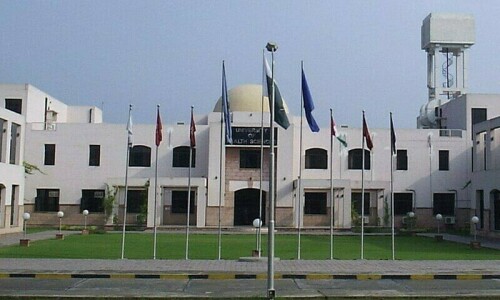DERA GHAZI KHAN: Octogenarian Hakeem Khuda Bukhsh prays that the repeat of the 1918 Spanish flu pandemic does not occur in his hometown and the region.
Though he has not seen the 1918 pandemic time, but he vividly remembers the horrible recollections of those times, which his father used to share with him and other family members.
As per the recorded history, the Spanish flu broke out in India from Bombay on June 10, 1918, with the admission of seven Europe-returned soldiers to a Bombay hospital. It implies the soldiers carried the disease to the region from Europe. Within two weeks, on June 24, 1918, the number of infected patient was recorded 1,600 in Bombay.
By September 1918, the disease spread all over British colonial India and it became focal point of the disease in the world as it claimed 10 to 20 million lives of Indians in the pre-antibiotic era, who were mostly dependent on indigenous medications. The death toll was 50 to 100 million the world over.
The oral history recounts that the flu pandemic hit hard Dera Ghazi Khan that even the locality ran short of shrouds because of the large scale of deaths within days.
Recalling memories passed on to him by his father Hakeem Khuda Bakhsh, Hakeem Saeed said that the flu mostly claimed the lives of minors and youth between 20 to 30 years of age in the area.
His father’s sister and her minor children also died of the deadly flu in their village adjacent to Choti Zaireen.
As per his accounts, no village or town was left without the scars of large scale deaths. The most horrific aspect was the shortage of shrouds at that critical time.
Hakeem Saeed says his father used to admit that most of the deaths occurred because there were no means of communication to raise awareness among the people about the fatal disease among the masses.
Sharing the memories of police official the late Faiz Muhammad Dona, Hakeem sahib added that in September 1918 he and some other police officials were directed by the police head of Dera Ghazi Khan town to help the people of Ahmedani Baluch tribe where all most male villagers had died of the fatal flu and only females of the village were left to bury bodies.
Volunteers and government officials managed the burials at a large level in the area.
Published in Dawn, March 26th, 2020












































Dear visitor, the comments section is undergoing an overhaul and will return soon.